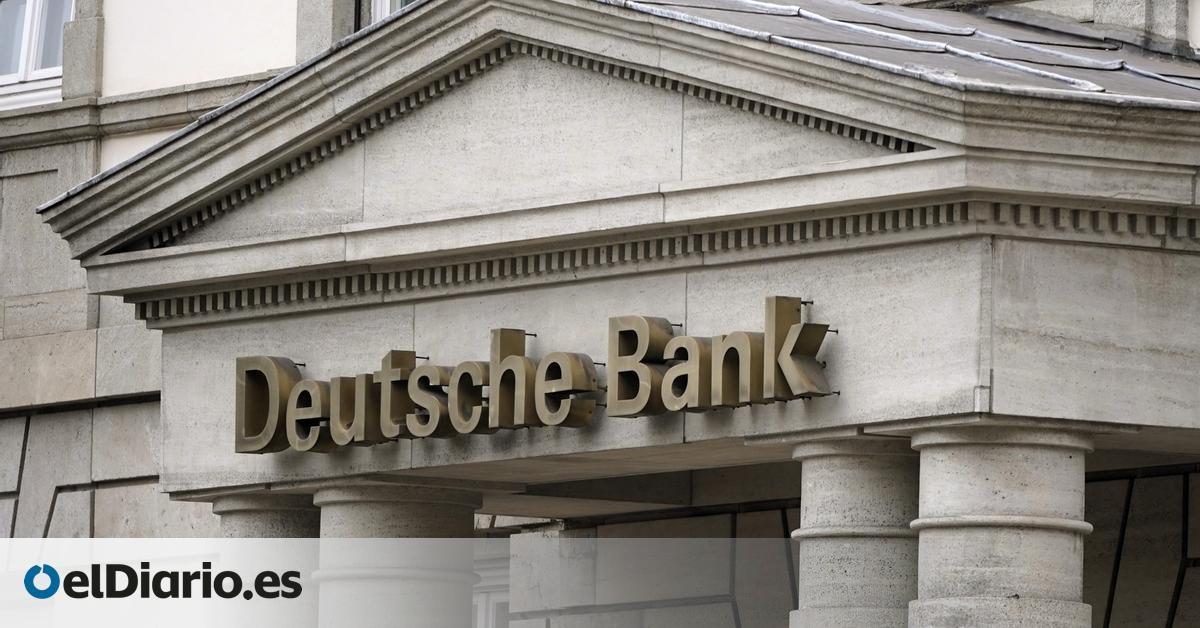
Deutsche Bank, the largest German bank and one of the largest in Europe, is being a new victim this Friday of the nervousness of the markets with the banking sector. The group has fallen 8.53% on the stock market in a session in which it has fallen more than 14%, a fact that has once again dragged European entities into widespread falls. Deutsche’s stock market crash comes a week after the Credit Suisse crash and 15 days after the collapse of the US mid-market banking system.
What are bank CoCos and why have they become protagonists after the fall of Credit Suisse?
Further
The price of the main banks of the Old Continent registered sharp falls again this Friday, which suggests that the recent interventions by the financial authorities have not calmed the nerves of investors, after the large central banks have continued to raise prices. interest rates despite the turmoil.
The reasons that have led Deutsche Bank to suffer this day of stock market turbulence are not clear, since the situation around the first German entity is now calmer than during the crisis that it experienced five years ago. Despite this, the cost of guarantee insurance against non-payment, known as CDS and an indicator of market confidence in the entity, have registered a strong increase during the day this Friday. Although, its levels have not approached those that Credit Suisse had before the intervention of the authorities.
Markets across Europe are dyed red by the concern now centered around the German entity. The Ibex 35, in Spain, drops more than 2.1% and sees the 9,000 points move away again. The fall is especially carried out by the banks. Bankinter lost more than 5%, while BBVA, Sabadell and Unicaja lost more than 4%. Santander and CaixaBank were around 3%. The falls have moderated throughout the session as Deutsche Bank’s decline became less pronounced.
Commerzbank, Deutsche Bank’s main competitor, dropped around 8% in a session in which all European banks turned red again due to investor nervousness. The European banking index, the Eurostoxx Banks, fell more than 5.5% in the middle of the session. The largest bank on the continent, BNP Paribas, falls more than 6.8%; Credit Agricole 3%; Société Générale, 6.8%; or Unicredit, 5.2%.
Deutsche Bank suffered turbulence in recent years due to various internal problems, but the current situation is far from what it was then. This Friday it announced that it will repurchase some debt bonds, a decision that usually tries to calm the market but that so far has not translated into better performance on the stock market. “It is a clear case that the market sells first and asks questions later,” says an analyst quoted by the Bloomberg agency who does not see a clear justification for the fall of Deutsche Bank. “There remains huge concern that the banking crisis could turn into a more risk averse event in the markets,” he notes. Citigroup analysts argue that this is an “irrational” market reaction.
The German Chancellor, Olaf Scholz, stated this Friday from Brussels that Deutsche Bank is a “profitable” entity so there is “no reason” to be concerned, despite the collapse of about 15% of its shares on the stock market.
“Deutsche Bank has modernized its business model. It is a profitable bank”, assured Scholz when asked at a press conference at the end of the European Council about the possibilities of contagion after the bailouts of Silicon Valley Bank and Credit Suisse.
“There is no reason to be concerned,” he concluded, when asked if he feared the German bank would become the next Credit Suisse and if the German government was prepared to help.
Source: www.eldiario.es

